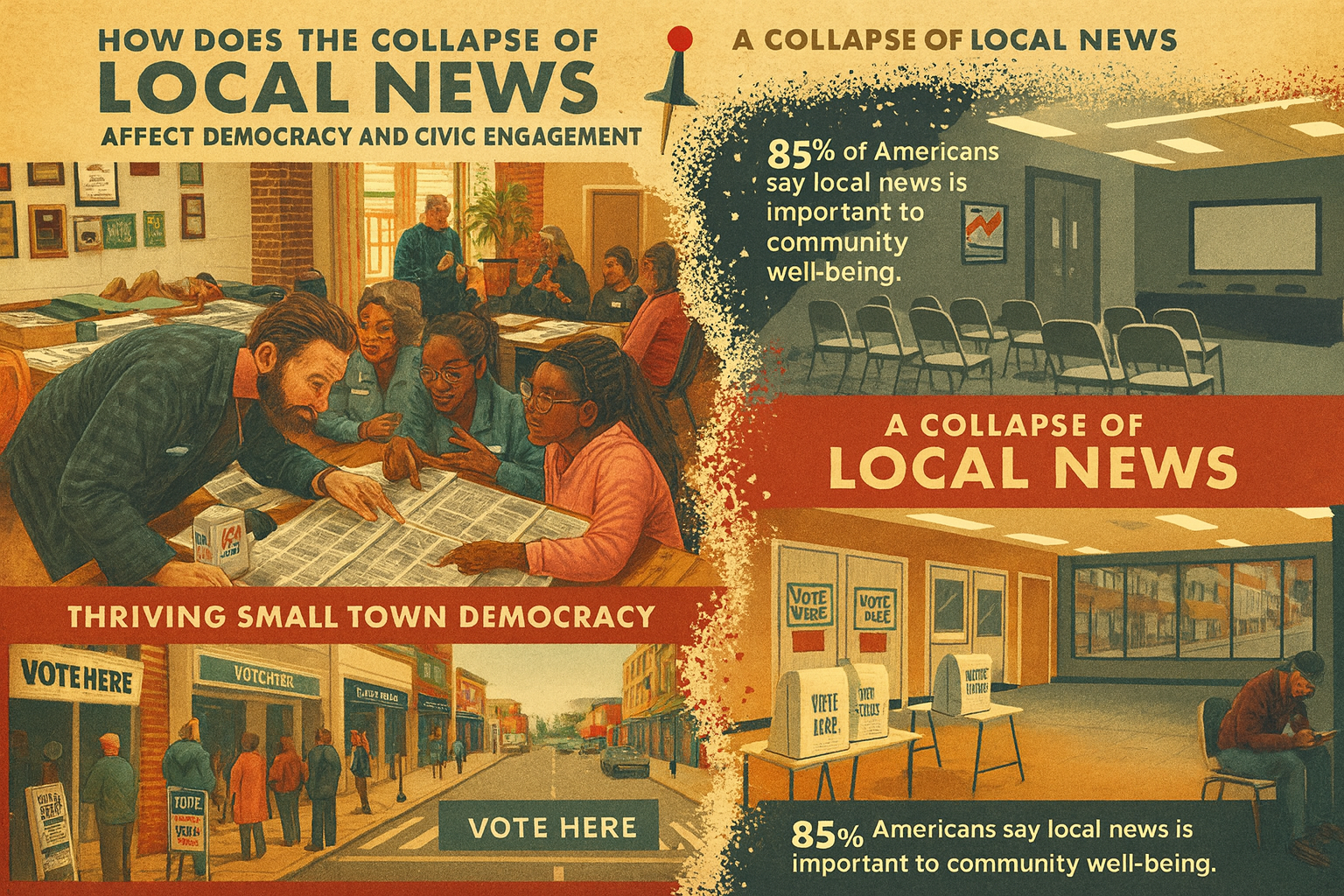The Silent Watchdog: How the Decline of Local News Undermines Small-Town Democracy
The SMG AI
Archives
The Silent Watchdog: How the Decline of Local News Undermines Small-Town Democracy
SIGN UP FOR OUR NEWSLETTER
The Silent Watchdog: How the Decline of Local News Undermines Small-Town Democracy |
Exploring the profound impact of disappearing local journalism on civic engagement and community identity |
For generations, local newspapers have served as the vigilant watchdogs of democracy in small towns, exposing corruption, reporting on school board debates, and providing citizens with the information necessary to make informed decisions at the ballot box.
Today, that crucial role is rapidly diminishing.
As newspapers close their doors, accountability wanes, and the repercussions for civic life are profound.
Studies reveal that communities without local news outlets experience lower voter turnout in both local and national elections.
Without a dedicated source of local information, residents often remain unaware of upcoming elections, the candidates involved, or the issues at stake.
Instead, they must rely on national media or fragmented online sources that seldom cover local matters such as school levies, city council races, or county budgets.
This information void leads to a less informed electorate and diminished participation at the polls.
The absence of local journalism doesn't just result in fewer headlines; it fundamentally alters governmental operations.
Research indicates that when local newspapers shut down, municipal borrowing costs rise.
Lenders perceive higher risks of corruption and mismanagement in towns lacking press oversight.
Without reporters attending city meetings or scrutinizing public records, officials face less scrutiny, and citizens lose a vital check on power.
Beyond politics, local newspapers foster a sense of shared community.
They publish Little League scores, church events, high school graduations, and obituaries.
When these stories disappear, small towns often lose their collective identity.
Social media may fill some gaps, but fragmented platforms rarely cultivate the same civic pride or cross-generational connections that a local newspaper provides.
This erosion of community bonds can accelerate population decline, as residents feel less connected to their hometowns.
In response to this crisis, some communities are experimenting with new models to replace what was lost.
Nonprofit newsrooms, university-led initiatives, and digital startups are emerging to cover civic life.
However, these efforts often struggle with funding and may lack the reach or cultural influence that traditional newspapers held for decades.
For instance, the National Trust for Local News, a nonprofit organization founded in 2021, has acquired and continues to operate about 60 newspapers across Colorado, Maine, and Georgia.
Similarly, the Press Forward initiative, launched in 2023, aims to invest over half a billion dollars into local journalism in the United States over five years.
Despite these efforts, the challenge in 2025 is not only to report the news but also to restore trust and rebuild engagement where it has eroded.
Democracy depends on an informed public.
Supporting independent, local journalism—whether by subscribing, donating, or sharing their stories—is essential.
Your town's future may depend on it. |

